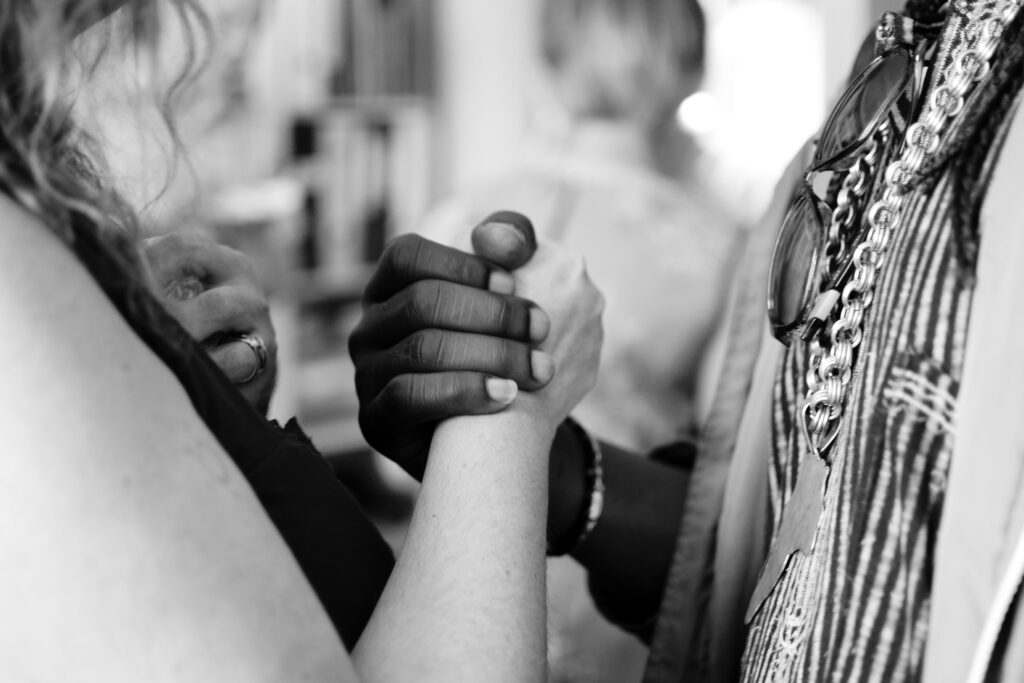States have loosened their restrictions and businesses are reopening and accepting customers. Many Americans are returning to work and a sense of normalcy. For those of us who are immunocompromised or medically-complicated, this is far from over. For those starting to feel more stability, let’s remember that COVID-19 affects each of us differently, and give to others when we can!
The CDC has released this very informative page about communities that are disproportionately impacted by COVID-19, as well as what we can all do to help! The reality is that groups of people who have been neglected in the past are feeling the effects of this pandemic more acutely. Low-income neighborhoods with crowded living spaces and less access to healthcare are at risk. People with preexisting conditions are at risk. Across categories, people of color are at risk. The report states that “Long-standing systemic health and social inequities have put some members of racial and ethnic minority groups at increased risk of getting COVID-19 or experiencing severe illness, regardless of age.” According to the New York Times, Black and Latinx Americans are about three times more likely to contract COVID-19.
Economically, this downswing has also hit some harder than others. For the 78% of Americans who live paycheck to paycheck, this loss of income can be devastating. One study showed that 40% of Black-owned businesses will likely have to close. When thinking about job loss, we also need to remember that the 27 million Americans who have just lost their health insurance (and the roughly 5 million who won’t have another option) will also face tougher consequences of a hospital stay.
Keeping these disparities in mind can feel heavy! Instead of feeling bogged down, let’s use this opportunity to open ourselves up to honest reflection and change. If this virus has taught us one thing, it is just how much our actions can have an impact on others. We’ve put together some resources for those of us who are looking to step up to this challenge:
Show Solidarity for Black Lives

Check out our tips for getting involved in the movement here. A good first step is taking the time to learn and unlearn about racism in our society. Here are some of our favorite resources for this learning:
Teaching Tolerance — readings and activities to learn about diversity, equity, and justice (tolerance.org)
Implicit bias — there are SO many resources about this topic. Google “implicit bias” and find something that fits your learning style (videos, articles, podcasts, etc), and take an assessment to see what your implicit biases are here.
In what ways do I perpetuate racism? — learn more about the Intercultural Development Continuum and take an online quiz here!
Want to join a challenge to actively improve each day? Check out this 21-day Racial Equity Habit Building Challenge!
Support local businesses

Think about how you spend your money! Consider a donation to a local nonprofit you care about or reanalyze where your money is already going. Are you spending money on large companies that are thriving during this time or corporations that don’t share your values? Consider purchasing those same items from local small businesses, especially those owned by people who share your values or people of color who may be hardest hit by the pandemic. You will likely have to spend a bit more, but remember that this money is going towards supporting a healthy economy and people who need the money most!
Restaurants are also being hit particularly hard. Consider getting takeout (much lower risk than eating out!) from a small, locally-owned restaurant, or buying gift certificates to use once things are safer. This small act, if taken by many members of the community, can help these restaurants stay in business!
Flatten the Curve

Remember, we are far from out of the woods. Check out how you can help fight COVID-19 here. The key points are stopping misinformation, keeping social distance, washing hands, and wearing masks! Consider donating masks to help others flatten the curve as well. If you know someone who is struggling during this time, here are some thoughts on Supporting Loved Ones Through Mental Health Challenges.
We hope you will join us in making a difference. Remember, we are Mightier Together.

